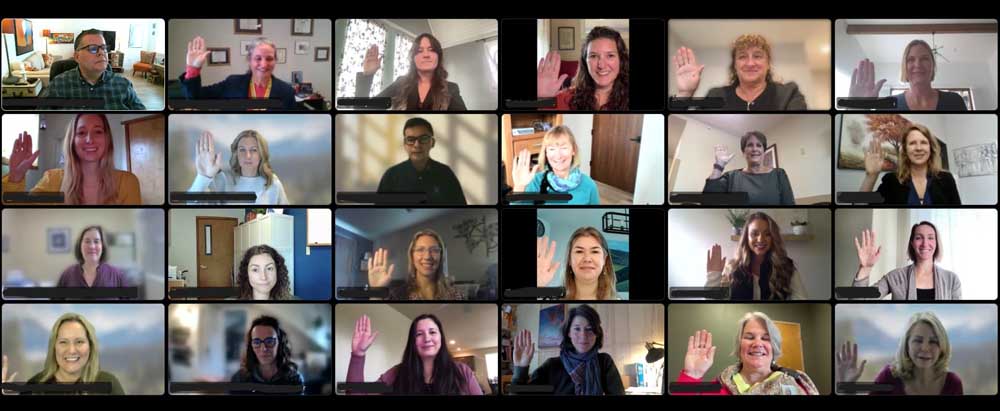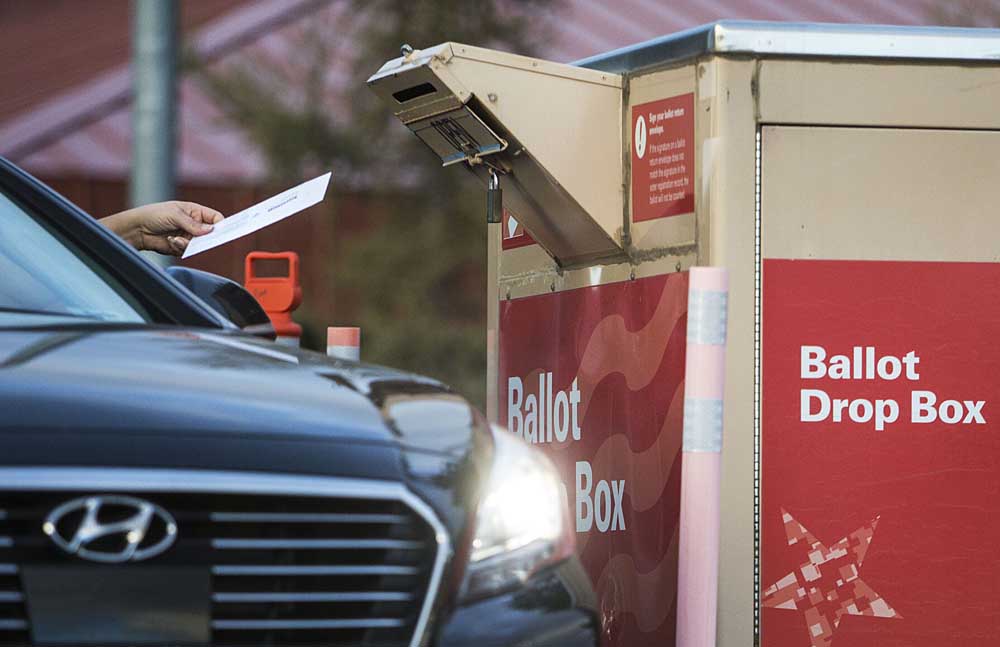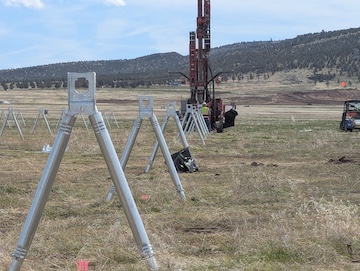CASA volunteers take on rising need in Central Oregon
Published 1:00 am Monday, January 1, 2024

- In November, a new group of CASA volunteers were sworn in online to start their work in communities throughout Central Oregon. More volunteers are needed in Redmond.
In Central Oregon, 441 children are in some part of the foster care system.
In each case, a volunteer is sought to advocate solely that child and their future as they navigate a slow-moving, often inscrutable justice system. Those volunteers are called Court Appointed Special Advocates, or CASAs.
Sometimes, the goal of those volunteers is to reunite a child with a parent who is working to overcome mistakes and get back on the right track. Other times, a volunteer works hard to keep an child away from someone who cannot care for them.
Currently 375 of the 441 children in the region have a CASA advocating for them — roughly 85 percent. In Redmond alone there are currently 89 children in care, 77 of which have a court-appointed advocate. Currently, five children in Redmond are awaiting their own advocate.
Recent CASAs, most of whom are based in the Redmond area, chatted with the Spokesman about their experiences and how they learned to navigate a complicated system, overcame problems and found ways to help.
Dianne Keefe-Bonnell
Completed training in November 2023
Dianne Keefe-Bonnell grew up in a stable, loving home and made sure her children — and now her grandchildren — were raised the same way.
“It’s a whole different world to me to know there are children out there that don’t have that,” said Keefe-Bonnell. “What hooked me was to be able to hopefully provide some sense of stability, some sense of voice, some sense of security to these kids.”
Keefe-Bonnel worked for 50 years at an escrow company in California before retiring and relocating to Redmond.
“I was like, ok, now I need to give back,” she said. “I need to do something that’s important to me that fires my passion.”
She decided to volunteer as a CASA. After an intense training period, she was introduced to her first case: A newborn baby girl in Redmond who was being raised by kind and involved grandparents.
“It’s been very heartwarming for me, because she’s in a very stable environment,” said Keefe-Bonnell. “She’s in a great place right now. She’s thriving.”
It’s Keefe-Bonnell’s job with CASA to make sure it remains that way, whether or not the child’s birth parents come back into her life. Keefe-Bonnell said she had to learn to leave judgement at the door when taking on this work — something that didn’t come naturally to her at first.
“It flipped my thinking,” said Keefe-Bonnell. “It was hard to do at first but I really worked with myself to not judge … my sole purpose is to make sure that child is in the best situation she can be in.”
Keefe-Bonnell said her husband warned her that being a CASA could be exhausting emotional labor that could leave her overtaxed and disppointed. But at this point, she said she enjoy the work and plans to be in her client’s corner for the long haul.
“I’ll be there to see what happens,” she said.
Grayson Dominguez
Volunteer since June 2023
Grayson Dominguez works at a memory care facility in Madras, so he’s used to caring for and advocating for people who can’t always speak up for themselves. He read an article about CASA and thought his background would set him up to succeed as a volunteer.
But on his first day, he found out how much he still had to learn.
Dominguez’s client has some intellectual disabilities, so communication would be difficult. His first introduction into the child’s life was through a chat with his mother. Despite over-preparing, Dominguez found himself nervous to get thrust into a complicated situation.
“I had no idea what I was getting into,” he said. “I sat in my car for 20 minutes and wrote down all of my questions so I wouldn’t forget them.”
Throughout the process, he listened — a skill he admits he needed to work on. He tried to consider different perspectives.
“There’s mom and what she wants,” recalled Dominguez. “There’s the caseworker, what they’re seeing. There’s doctors, therapists, our program coordinators, they have a lump sum of background already. So taking everything from their point of views.”
Dominguez said wading through all of that is the difficult part of being a CASA, but it’s also where the the truth is.
“I guess the next step is what we’re trying to figure out is just how he can be safe for himself and others around him,” said Dominguez. “Trying to figure that out and self-regulation is really the biggest thing, especially when someone does have those disabilities … Of course independence is a big thing, especially as we get older, turning from a young child to a young adult, you just want your independence. And so that’s kind of what we’re working on right now is balancing that, balancing the grownup issues to independence, young adult things and how we can figure out what he can do.”
For now, Dominguez said he is enjoying knowing his client as the young person he is now. They two have become pals and Dominguez said it’s nice to know that he is seen as a dependable companion.
“He wants me to bring him chocolate milk and a peanut butter cup every time,” he said.
Robin Dal Soglio
Volunteer since 2022
Glenda Graham
Glenda Graham got involved in CASA in more than four years ago — the same time that her children were leaving for college and she was facing an empty nest at home.
“I was going through a little bit of a crisis,” laughed Graham. “I needed something to do that I could feel passionate about.”
“I was looking for opportunities, and I saw this, just realizing that (some) children … don’t have someone that has their back all the time, that is willing to stop their life and be there and just make sure that they’re thriving,” said Graham. “It spoke to me.”
Graham has now overseen multiple clients. Because she works full-time, she takes on only one case at a time.
Graham said the CASA training prepared her well, but then it’s time to dive in. She remembers getting “the pile” — a stack of documents prepared in advance. Often, includes information about the child, interviews with relatives, foster parents, psychologists and social workers, as well as orders from judges. It can be overwhelming and at times contradictory and bewildering.
“It’s getting to know the families, it’s getting to know the kiddos, it’s getting to know the parents, which can be tricky. All of it can be tricky, but just looking out for them and making sure that they have what they need and if anybody’s missing anything,” she said.
“It was really neat to know that at the end of it, she has a loving, supportive family that knows what she’s been through and is willing to support her and she’s thriving,” said Graham “It’s really neat to see them thrive, to go from a situation where they’re not given much to a situation where they’re getting all the love and all the family they can handle.”
CASA offers multiple online and in-person trainings beginning next week.
An afternoon Zoom training runs from 2-5:30 p.m. from Jan. 15 through March 15
An evening Zoom training runs from 5-8:30 p.m. from Jan. 22 through March 11.





